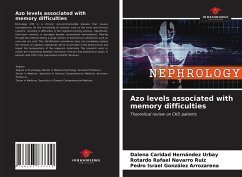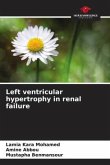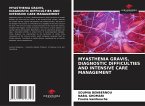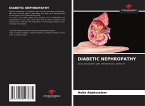End-stage CKD is a chronic non-communicable disease that causes consequences for the functioning of systems such as the renal and nervous systems, resulting in difficulties in the cognitive-memory process. Specifically, short-term memory is damaged despite conventional hemodialysis, filtering through the artificial kidney a large number of biochemical substances such as urea and uric acid. This ultrafiltration sometimes does not completely replace the removal of cytotoxic substances which accumulate in the blood serum and impair the homeostasis of the organism holistically. The research aims to review the relationship between short-term memory and biochemical values in patients with CKD in the specialized scientific literature.
Bitte wählen Sie Ihr Anliegen aus.
Rechnungen
Retourenschein anfordern
Bestellstatus
Storno








